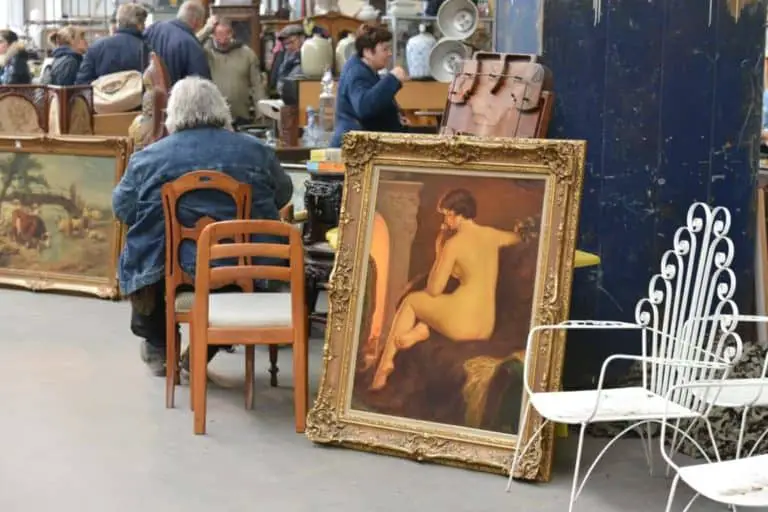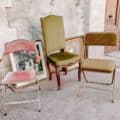Passionate about antiques and flea markets, you have amassed a nice collection of antiques over the last few years. And you are now seriously considering becoming a full-time antique dealer on your own. Before taking the leap, it is important to know that the profession of antique dealer involves a number of obligations. It also requires certain qualities to succeed in this exciting field.
What does an antique dealer do?
Antique dealers are professionals who buy and sell antique art objects like books, furniture, decorative items, upholstery, pottery, sculptures, weapons, coins, jewelry, paintings. Lovers of fine art in search of rare and antique pieces, antique dealers systematically check the authenticity of the antiques they have found. They also propose a purchase price, restore them if necessary, exhibit them, set the selling price, and carry out the transactions. Finally, they can also offer their expertise to people interested in investing in art.
Unlike second-hand dealers who do not authenticate the goods and sell them without a warranty, antique dealers offer referenced and dated pieces whose history and provenance they know.
Where do antique dealers source their antiques?
Antique dealers prospect and find antique objects at auction houses, estate sales, and antique fairs. They also often scour exhibitions from collectors and other antique dealers, inheritances or successions, or even flea markets.
What kind of expertise is expected from an antique dealer?
Antique dealers assess the historicity and authenticity of antique pieces. They determine the period of their creation and their value, originality, and characteristics. Professional merchants can also call an art expert in order to get his or her input on a specific item. They can detect counterfeits, copies or fakes, and assess the significance of an object’s defect or wear and tear.
Are antique dealers supposed to restore antiques on their own?
Most antique dealers are able to make minor repairs and restoration. Most of them know how to use a variety of specialized techniques and use special cleaning products. If necessary, they resort to the skills of expert craftsmen. Like cabinetmakers, glass painters, or art restorers, to whom they outsource the restoration of antique goods requiring a more complex restoration work.
The work environment of an antique dealer
The majority of antique dealers are no jack of all trades. Most of them are limited to certain time periods, certain materials, or a specific field (watchmaking, automotive). Finding valuable merchandise in sufficient quantities to ensure a commercial activity is one of their main concerns. Curious and well-informed, antique dealers frequent auction houses like Christie’s and Sotheby’s for instance. They also maintain privileged contacts with suppliers and customers. A high level of availability is essential for them to be able to leave in search of an item that has been reported to them. Or to meet with a potential customer.
What characteristics every self-employed antique dealer should have?
Whether you want to become an antique dealer or a self-employed second-hand dealer, you must have certain qualities to succeed in this trade.
Historical knowledge
This trade relies mainly on the ability to identify antique objects. But also to estimate them at their fair value, and to resell them at the best price. It is therefore important to be passionate about art history so as not to miss out on great opportunities.
Curiosity
Antique dealers must like to travel all over the country and sometimes beyond its borders, to source exceptional pieces. His intuition, his knowledge of the market, and his sense of observation allow him to identify objects that he could resell at a good price.
Salesmanship
Professional antique dealers are also salesmen. To succeed, it is therefore important for them to have good interpersonal skills, inform and advise potential clients. A professional antique dealer should be able to carry out sales transactions for objects at a price that takes into account different elements. Like the time period, the supply and demand, and the state of preservation. A professional dealer should also know how to negotiate the purchase and resale prices. This is an important factor for the business to be profitable.
Entrepreneurship
Antique dealers should also be able to carry out the administrative work connected with any sale activity.
Tech-savviness and social-media awareness
Antique dealers traditionally carry that image of a gentleman sitting at the back of a dusty store. In reality, antique dealers are nowadays a far more eclectic lot. They are aware that in order to stand out from the crowd, they need to master the internet to build up their knowledge and make clever use of social media like Instagram and Facebook as a selling tool to access new clients around the world. A reputable antique dealer maintains a fairly modern website on which he sells his antiques or at least describes his activity and briefly presents his professional history to his potential customers. Selling antiques online requires a good understanding of marketplace policies and learning tricks of the internet trade.
How to become an antique dealer: Education and training
There is no specific training leading to an official title, to become an antique dealer. A background in handicrafts or applied arts (cabinetmaker, watchmaker, jeweler, interior decorator) and attending art history and/or archaeology classes are a good basis for exercising this profession. Also, a few private institutions offer classes on styles, periods, interior design, art trade, and so on.
In order to work as an antique dealer, it is necessary to become familiar with the trade from professionals in the field. Internships in major auction houses like Christie’s and Sotheby’s, museums, antique dealers, or brokers can be a valuable starting point.
Career opportunities
Most antique dealers are specialized in the sale of a certain type of object (ex: Rattan furniture, antique mirrors), a period (ex: Victorian), or a country (ex: French provincial decor). A non-exhaustive list of specialties can include antique furniture, carpets, silverware, porcelain, earthenware, ceramics, sculptures, antique clocks, vintage wall clocks, antique jewelry, Art Nouveau, Art Deco, rustic objects, firearms, antique paintings, icons, engravings, prints, books, antique magazines, archaeological objects, numismatics, and so on.
Professional antique dealers may also work in museums, in the restoration of art objects. Or as experts for insurance companies or customs authorities. The majority of antique dealers are independent and have their own business. Specializations are also possible to become an art expert or auctioneer.
Generally speaking, success in this profession depends on the time and capital invested. But also on the commercial sense of those involved, as well as on the quality of the contacts. And the extent of the relationships.
Lastly, the profession of antique dealers requires a constant deepening of knowledge. For example by attending conferences on a particular subject, visiting museums, and reading trade/specialized magazines and books.



